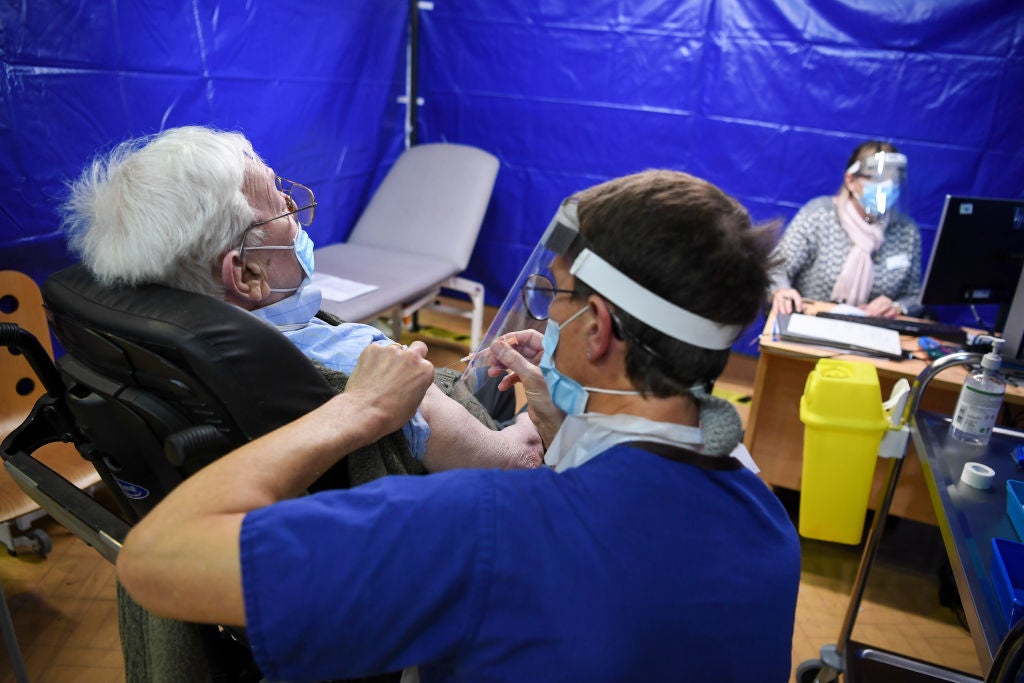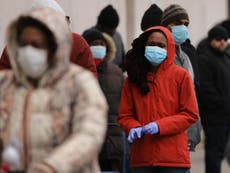We are not all in this pandemic together – inequality is stealing so many lives
Coronavirus has magnified premature mortality in deprived communities. The data doesn’t lie, yet the government has done little to support the poor, writes Ian Hamilton


We are not all in this pandemic together, for proof look no further than the latest data released by the Office for National Statistics. Stark geographical differences in deaths due to Covid-19 are apparent, the most deprived areas of England have mortality rates two and a half times those of the least deprived.
Yorkshire and Humber recorded 320 deaths per 100,000 of the population compared to 123 deaths per 100,000 in the South West. The contrast for Wales is just as grim, the most deprived areas recorded 560 deaths per 100,000 compared to 285 per 100,000 in the least deprived.
The unequal results of contracting coronavirus have been observed since the early part of the pandemic, despite this little appears to have been done to acknowledge it let alone reduce it by politicians. The factors contributing to this inequality are not a mystery they don’t need an enquiry to be uncovered they are also well known.
Overcrowded housing, insecure employment, pre-existing health issues, being black or from an ethnic minority and poverty are all well-established links to not only contracting coronavirus but dying as a result. These risk factors all too often combine, which amplifies the risk of death. Individuals from the black, Asian, and minority ethnic communities are more likely to be on a low income and feel they have no choice but to go to work to ensure they can survive, paradoxically increasing their risk of dying.
We already knew about the differences in life expectancy between the rich and poor prior to the pandemic, as those living in the wealthiest communities enjoyed nearly a decade more than those living in the most deprived. The pandemic has magnified the depth and scale of premature mortality in these neighbourhoods.
Despite these obvious inequalities, the government appears to be oblivious and pursues a strategy based on one size fits all. All their economic, social and health interventions are blind to inequality and assume everyone has the same resources and support, which they clearly don’t. Numerous examples have been highlighted to ministers of how this plays out – such as those who can’t afford to isolate or have the means to travel miles to a coronavirus test centre.
But covid inequality is not a uniquely national issue. As WHO director-general Tedros Adhanom Ghebreyesus reminded us this week, wealthy countries are “hoovering up” vaccines at the expense of their poorer counterparts. Compare the 39 million vaccines administered in 49 higher-income countries compared to just 25 in Guinea. It seems little has been learned from previous pandemics as this replicates the previous selfish response to the H1N1 and HIV infections.
The idea that we can deny poorer countries vaccines but protect our “own” is flawed, this is a global pandemic that requires global intervention not the all too familiar nationalist “us first” approach. Yet there is little sign of this global co-operation or strategy, reflecting the entrenched nationalist position many of the most powerful leaders have promoted.
So, while it may sound cosy and comforting to say we are all in this together the reality is we aren’t. This fact is cruelly compounded by the unnecessary way that inequality is stealing so many lives. Nationally and internationally, we have sufficient resource and knowledge to minimise the numerous ways that the unequal consequences of a pandemic are felt but so far, we have failed to act. There are so many aspects of this pandemic that have been beyond our control, but challenging inequality is firmly within our means and not a predetermined destiny.



Join our commenting forum
Join thought-provoking conversations, follow other Independent readers and see their replies
Comments